


Jonathan B. Baker is Professor of Law at American University's Washington College of Law, where he teaches courses primarily in the areas of antitrust and economic regulation. From 1995 to 1998, Professor Baker served as the Director of the Bureau of Economics at the Federal Trade Commission. Previously, he worked as a Senior Economist at the President's Council of Economic Advisers, Special Assistant to the Deputy Assistant Attorney General for Economics in the Antitrust Division of the Department of Justice, an Assistant Professor at Dartmouth's Amos Tuck School of Business Administration, an Attorney Advisor to the Acting Chairman of the Federal Trade Commission, and an antitrust lawyer in private practice. Professor Baker is a member of the Council of the American Bar Association's Section of Antitrust Law, and is a Senior Consultant with Charles River Associates. He is the co-author of an antitrust casebook and a past Editorial Chair of Antitrust Law Journal. Professor Baker has published widely in the fields of antitrust law and policy and empirical industrial organization economics. He received a J.D. from Harvard and a Ph.D. in economics from Stanford University.
Richard Gilbert is Professor of Economics at the University of California at Berkeley and a Director of LECG, an international consulting firm. From 1993 to 1995 he was Deputy Assistant Attorney General in the Antitrust Division of the U.S. Department of Justice, where he led the development of joint Department of Justice and Federal Trade Commission Antitrust Guidelines for the Licensing of Intellectual Property. From 2002 to 2005 he was the Chair of the Department of Economics at the University of California at Berkeley. Before serving in the Department of Justice, Professor Gilbert was the Director of the University of California Energy Institute. He was Associate Editor of The Journal of the Industrial Economics, The Journal of Economic Theory and The Review of Industrial Organization and a past president of the Industrial Organization Society. Professor Gilbert’s research specialties are in the areas of competition policy, intellectual property, research and development, and energy markets. Professor Gilbert earned his Ph.D. in Engineering-Economic Systems from Stanford University in 1976. He received a Bachelor of Science degree in Electrical Engineering in 1966 and a Master of Science degree in 1967, both from Cornell University.
David Heiner is Deputy General Counsel at Microsoft Corporation, where he heads up the legal department’s Antitrust Practice Group. Mr. Heiner is responsible for antitrust counseling as well as representation of the company before antitrust regulatory agencies. Mr. Heiner is a graduate of Cornell University and the University of Michigan Law School. Before joining Microsoft in 1994, Mr. Heiner practiced at Sullivan & Cromwell in New York, focusing on antitrust, securities and other commercial litigation. Following law school, Mr. Heiner clerked for the Honorable Thomas P. Griesa of the U.S. District Court of the Southern District of New York.
Spencer Waller is Professor and Associate Dean for Research at Loyola University Chicago School of Law. He is one of the most technologically sophisticated scholars in the emerging fields of intellectual property and Internet/cyberspace law. He has published important articles concerning the viability of contemporary control-based criticisms of intellectual property laws; the relationship between technology and the patent law; the First Amendment and software regulation, among others. His current projects include an empirical study of the Federal Circuit’s methodological approach to patent decisions, an analysis of ‘state’ First Amendment interests, and the articulation of an ex ante theory of the patent law.
Michael Whinston is the Robert E. and Emily H. King Professor of Business Institutions in the Department of Economics at Northwestern University. He also holds courtesy appointments in both Northwestern Kellogg School of Management and the Law School. His work in the areas of industrial organization and microeconomic theory includes many articles related to antitrust on topics such as exclusive dealing, tying, horizontal mergers, and the Microsoft case. His is also a coauthor of the leading graduate microeconomics textbook, Microeconomic Theory.
The program is produced jointly with the UW School of Law
|